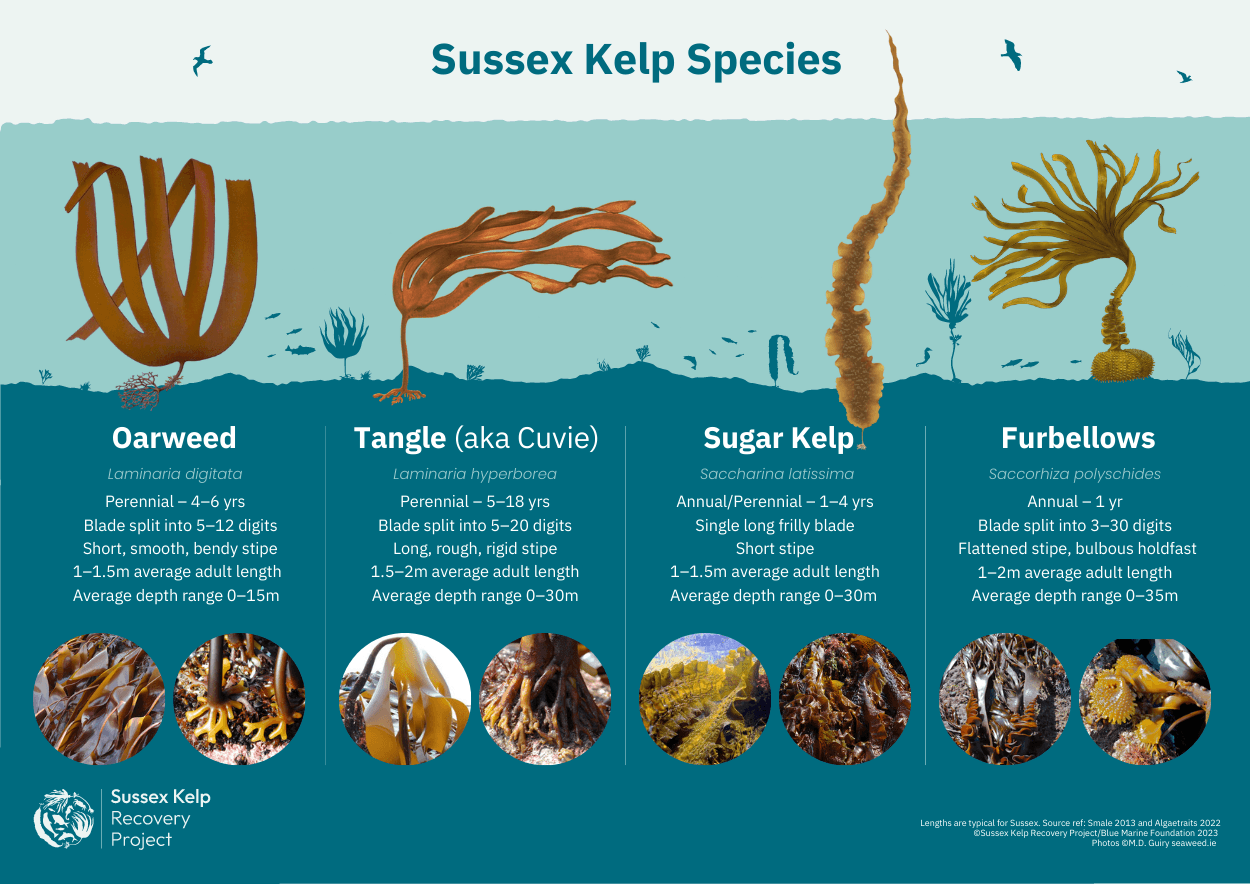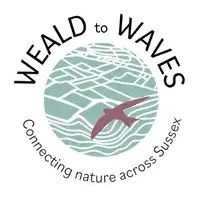Citizen science: kelp combing, eggcase hunting & dolphin spotting
By Sarah Hayward - 18 July 2023
Kelp Recording Scheme
Fancy a spot of kelp combing this summer? The Sussex Kelp Recovery Project would love your help to record sightings of this super seaweed along the Sussex coastline.
Using the handy guide below, you can enjoy learning how to identify the different types of kelp, building your knowledge and skills, while making an important contribution to this wonderful project.

Take a friend or make it a fun, educational family activity to keep the kids entertained over the school holidays.
To start submitting your kelp sightings, you will need to register for a Kelp Recording Scheme account.
Once the Living Seas team has added you to the recording platform, you will receive an email with a step by step guide on how to get started.
The recording tool is simple to use, designed to be accessible for all, even those of us who are not confident of our kelp identification skills (that will be most of us then).
We’re looking forward to learning more about this amazing algae. See you on the beach!
More Sussex marine and coastal citizen science challenges:
Shoresearch
Run by the Sussex Wildlife Trust, volunteers can explore and record marine life and habitats along the coastline. Surveys cover various sites from east to west, including seagrass meadows and rocky reefs. Participants contribute valuable data to understand and protect marine ecosystems, fostering a deeper connection to coastal conservation.
Seasearch
Recreational divers and snorkelers to collect valuable data on marine life and habitats. Volunteers undergo training to become Seasearch Surveyors, allowing them to conduct surveys and monitor the underwater environment along the Sussex coast.
The Great Eggcase Hunt
This project, organized by the Shark Trust, involves volunteers searching for and recording the empty egg cases (mermaid's purses) of sharks, skates, and rays on Sussex beaches. By identifying and reporting these finds, participants contribute to our understanding of local populations.
Dolphinwatch
Run by the Sea Watch Foundation, Dolphinwatch encourages the public to report sightings of dolphins and porpoises along the Sussex coastline. These sightings contribute to ongoing research on cetacean populations and distribution in UK waters.
Marine Conservation Society Beachwatch
Beachwatch is a national project that organises beach clean-up events, including those on Sussex shores. Volunteers collect data on the types and amounts of marine litter found, helping to raise awareness of marine pollution issues.

